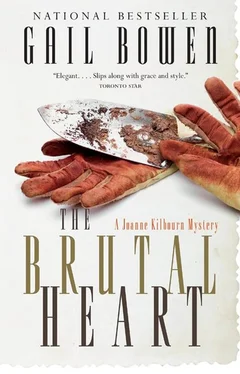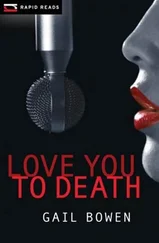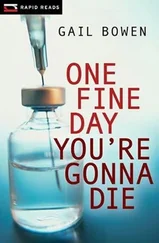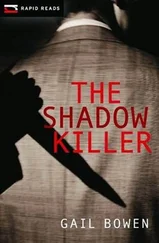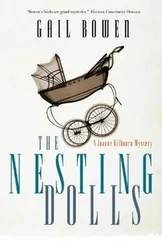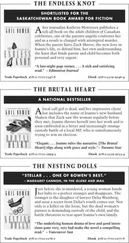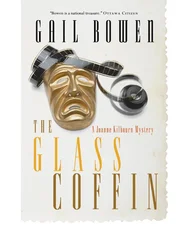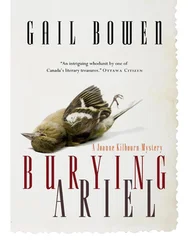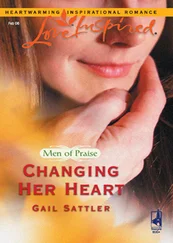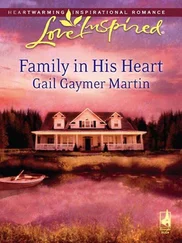“You really think Ginny could have brought in the GTA vote?”
“I do,” Keith said. “But it’s a moot point, isn’t it?”
The young woman with the pancake makeup was working magic. Keith’s pallor was gone; he looked as if he’d just come back from two weeks in the sun. “Stop talking, please,” the young woman said. She patted under his eyes, dusted his shining pate with powder, ran a comb through what was left of his hair, and whipped off the towel. “You’re done,” she said.
Keith smiled at her pleasantly. “You have no idea how right you are,” he said.
The young woman motioned me into the chair, and within minutes the crow’s feet around my eyes were barely discernible, my cheeks glowed with health, and my lipline was smooth. Miracles all around.
“Want to go out in the atrium and take the pulse of the people?” I said.
Keith shook his head. “Nah. Let’s sit in the green room and eat NationTV’s Cheezies.”
The evening began slowly, as election nights always do for Western Canadians. Until the polls closed in Saskatchewan and Alberta, our role was to watch and wait. But during the watching and waiting, some intriguing patterns were developing. As Keith had predicted, his party was doing well in the Maritimes, and Quebec, as usual, was carving out her own destiny. A heavy vote in the 905 was usually good news for the Tories, but tonight significant numbers of voters were apparently shifting to the middle. The Tories weren’t losing seats, but their margins of victory were razor-thin. People in the area surrounding Toronto were voting like the Torontonians many of them had been until they moved to the burgeoning towns that ringed the city.
By the time the Saskatchewan and Albertan results started coming in, the three national networks were declaring that Canada was headed for a minority government and that the party controlling the government would be decided in the West. Alberta would be in the Tory column, but Saskatchewan and British Columbia were question marks. It was a night for caffeine and chewed fingernails, but there’d be no chewed fingernails in Palliser. By early evening, it was clear that Ginny Monaghan had lost the riding to the NDP’S sacrificial lamb, Evan Shattuck.
Ginny didn’t prolong the agony. When word came that she had arrived at the Pile O’ Bones Club and was about to concede defeat, the network producer signalled me over. The network was picking up Ginny’s speech live and wanted commentary.
As always, one picture was worth a thousand words. Tonight, there was no need to pull back the divider between the two banquet halls. Milo had done his best to cluster Ginny’s supporters in front of the cameras, but defeat has a way of thinning a crowd.
Keith and I were seated side by side watching the monitor, and as Ginny came to the podium flanked by her slender, long-limbed daughters, his breath was ragged. I shot him a worried glance, but we were both wearing lapel mikes, so his only reassurance was a companionable wink before we both turned back to the monitor.
Ginny’s speech was short and gracious. She thanked all her opponents on a hard-fought race, congratulated Evan on his victory, and then launched into her remarks.
“Winston Churchill once said that the Chinese ideogram for ‘crisis’ is made up of two characters: one means ‘danger,’ the other ‘opportunity.’ When the final votes are counted, there’s a strong possibility that Canada will have a minority government and we will not head that government. The danger for our party is all too apparent. This crisis could bring out the worst in us. We could waste the next months in recriminations, accusations, and backbiting. That’s one option. But as Churchill reminds us, there’s another response to crisis. We can see this crisis as an opportunity – a chance to rebuild, to reach out to all Canadians: people of colour, people who are white, gays, lesbians, bisexuals, straights, Muslims, Jews, Christians, Buddhists, agnostics, atheists, those who are pro-choice as well as those who are pro-life. We can say to all Canadians, ‘We are the real party of the people.’ And we can mean it. Thank you for allowing me to represent you all these years.”
The applause at the end of Ginny’s speech was perfunctory. The red light on the camera in front of Keith and me came on. In my earphone, a disembodied voice said, “So, Joanne, is this the end for Ginny Monaghan?”
“No,” I said. “That was a thoughtful speech – people will remember it.”
“You don’t believe her husband’s murder has put an end to her political career?”
“No,” I said. “Jason Brodnitz’s death was a tragedy. Tragedies happen. Obviously, Ginny’s first priority now is her family. But when she’s ready to make plans, there’ll be many options open to her.”
“Including politics?”
“Including politics,” I said.
“You think the electorate will forgive her?”
“There’s nothing for them to forgive.” I said.
The next question was directed at Keith. It was a reworking of the question about Ginny’s future, and Keith’s answer was articulate and incisive.
When the red light went off, I gave him the thumbs-up. “Nice answer,” I said.
“Remember what Eugene McCarthy said about politics?”
“Eugene McCarthy said a lot of things about politics.”
Keith nodded. “True enough,” he said, “but I’ve always had a particular fondness for this observation. McCarthy said ‘Politics is like coaching football. You have to be smart enough to know how the game is played and dumb enough to think it’s important.’ ”
“And you’re fond of that quote because…?”
Keith’s laugh was short. “After all these wasted years, I’m still dumb enough to think it’s important.”
For the next hour, Keith and I sat on the set, waiting. He made some phone calls and took some phone calls – notably one from Ginny. Before he rang off, he said. “Well, if I don’t see you before I leave, take care of yourself. I’ll be in touch.” Then he turned to me and said, “Ginny and the girls are going back to the lake. She’ll call you in the morning.”
“Sounds like you’re not going to be around much longer either,” I said.
“I’ve got my ticket for the three-fifteen flight tomorrow afternoon.”
“That was sudden.”
“Not really. My job here is done. I wasn’t successful, but there’s nothing I can do to change the results. Besides, there’s a big meeting tomorrow night in Ottawa.”
“Are you going to be in trouble?”
“No. You were right about Brodnitz’s death. Tragedies happen. Besides, what are they going to do, fire me?”
“You don’t seem very worried.”
“I’m not.”
When it finally became clear that the answer to the election would come in Alberta and British Columbia, the network producer thanked us and waved us off.
“The party’s over,” I said. “Let’s get out of here.”
“We’re still wearing pancake makeup.”
“Everyone will assume we’re people who matter.”
“We are people who matter,” Keith said.
He took my arm and we ran through the rain to my car. Keith was breathing heavily by the time we got there.
“So where to?” I said. “We could go back to our place for a drink, or would you rather get back to your hotel?”
“Let’s just sit here for a moment and enjoy the peace,” Keith said.
“Fine with me,” I said. “Give us a chance to talk.”
“About what?”
“About what’s next for you. Ginny’s speech was stirring, but we both know the knives are already out for your leader. In the next couple of weeks, the boys and girls who want to replace him are going to be knocking on your door.”
Читать дальше
